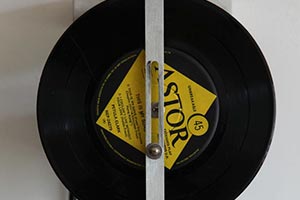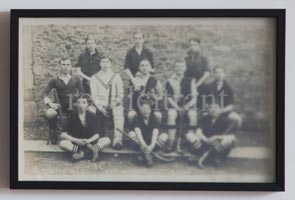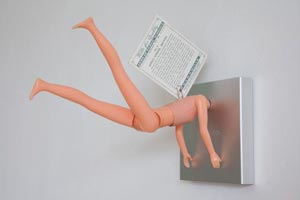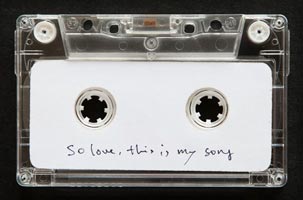A small series of works developed from the superimposition of the popular song This Is My Song by Petula Clark and the turbulant year of 1967 in Hong Kong
 A Countess From Hong Kong
A Countess From Hong Kong Extremely Recalcitrant
Extremely Recalcitrant Public Schools
Public Schools So, love, this is my song...
So, love, this is my song...
No news is good news! “Day free of bomb incidents” may sound trivial for those living in peace lands but could mean much more to those living in places of conflict today. Dated August 27, 1967, the statement was a headline from the front page of the South China Sunday Post and demonstrated the fear of violence prevalent in Hong Kong since May when a series of labour deputes broke out. These turned into full-scale anti-British riots and bombings supported by patriotic Chinese leftists and their sympathisers in Hong Kong, in a sort of response to the Proletarian Cultural Revolution in China that had began a year previous. It happened in one single day in November 1967; more than one hundred bombs were found in different places of Hong Kong and more than 80 of which were real.
I was born in January 1968 when peace had more or less resumed, but I had been conceived when news of the protests, struggles and violence was being reported daily. This violence was something quite rare for the city, which had always provided shelter for people from nearby countries escaping their own national conflicts. It is an amazing fact that I was physically close to this historical moment but actually have no memory and experience of it at all. Even my parents did not witness any of the events in person — the closest incident to either of them was my father’s proximity at work to a nearby factory in which one of the first serious labour disputes broke out. In the following days bus drivers went on strike to show support — my father was not political and continued to go to work as usual, except that this time on foot.
History before my birth appears as a remote combination of events and judgements. It seems there is no flesh but only pieces of information that are reduced to data for analysis. Historical figures only hold meaning for History, nothing else. My father’s uneventful recollection is, for me, the greatest subversion of all the Historical depictions that I came across during my research. Perhaps we crave an authentic history, which unfortunately is not necessarily reality. Or, to be fair, we never achieve a full picture of reality, which is often presented or interpreted in fragments, or sections.
When I was unearthing all these fragments of Hong Kong’s history in 1967, it became a means to contemplate their hidden relationship with other elements from the same time; a way to consider my links to this secular world while I was still in my mother’s womb. It was like a journey in search of something that was barely prescribed. But there were narratives popping up during my search, which I found to be a way to understand the larger narrative. I was amazed that pop music was used to fight revolutionary songs; that housewives were struggling to balance their sympathy for a tortured musician escaped from China with their self- indulgent need for a new expensive kitchen; that young leftist students condemning the restrictive colonialist “manners” they learnt at school whilst embracing the greatest UK pop of the year... But then I know I am no historian or researcher. I will be lost and will never establish any conclusion.
This Is My Song by Petula Clark is such a lovely cheesy easy listening piece.